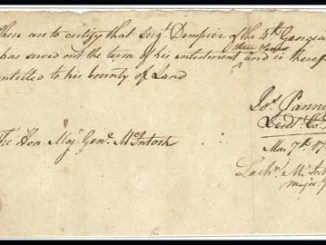
Widget not in any sidebars
Putnam’s leadership and battlefield experience served him and the Continental Army most admirably at the Battle of Bunker Hill in June 1775, where he helped develop strategy and distinguished himself on the battlefield. Shortly after taking command of the New York troops in March 1776, though, Putnam’s career took a downturn. In August 1776, British troops forced his retreat at the Battle of Long Island. After retreating again from the New York battles for Fort Montgomery and Fort Clinton in 1777, General Washington began to doubt Putnam’s leadership. Considered one of Washington’s most valuable military men at the beginning of the Revolutionary War, Putnam began to be seen as an ineffective leader. Still, he continued serving in the Continental Army until suffering a career-ending stroke in December 1779.
Israel Putnam was not the only member of his extended family to end his life in disrepute. His ancestors were among the residents of Salem Village (modern-day Danvers), Massachusetts, to execute 20 of their neighbors after accusing them of witchcraft in the famous trials of 1692.







Be the first to comment